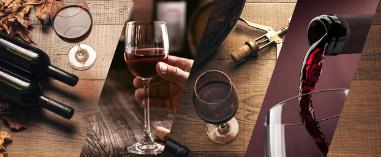Wine is one of the main beverages in human life. With the continuous improvement of people's living standards, the variety of wine is also increasing. At present, there are also significant safety hazards in wine products, such as excessive additives, sweeteners in white wine, substandard quality indicators, plasticizer problems, etc. It is imperative to improve the quality of products and maximize the quality of liquor to meet consumer requirements through comprehensive and efficient testing of liquor quality. As a global best-selling commodity, wine is closely related to people's lives, and the technology for testing wine is of great relevance to control the quality of wine and improving the reputation of corporate wine.

The processes used for different types of alcoholic beverages often differ, and the standards and techniques referred to during testing also vary. Our food technology team will test all aspects of wine in strict accordance with international standards.
As a leader in wine testing, Lifeasible offers a full range of wine testing solutions to meet the daily control and risk identification needs of wine products, ensure product compliance, reduce our own risk, and ensure food safety. Our laboratory can test all items, including all years of sampling and monitoring, with a testing cycle of 5-7 business days. Our wine testing services include but are not limited to.
Considering all wine testing parameters, we test almost all types of teas and perform step-by-step analysis according to procedures and set criteria. We can continuously measure hazards and continuously improve processes. Our services or solutions are popular in wine production, distribution and trading activities, and scientific research. We look forward to working with you, and you will benefit from our one-stop service, from testing and reporting to the highest standard of post-analysis. For more information or to discuss in detail, please contact us.
Lifeasible has established a one-stop service platform for plants. In addition to obtaining customized solutions for plant genetic engineering, customers can also conduct follow-up analysis and research on plants through our analysis platform. The analytical services we provide include but are not limited to the following:
Get Latest Lifeasible News and Updates Directly to Your Inbox